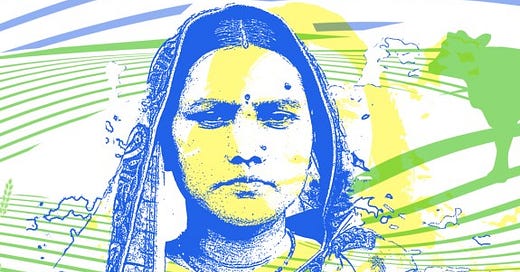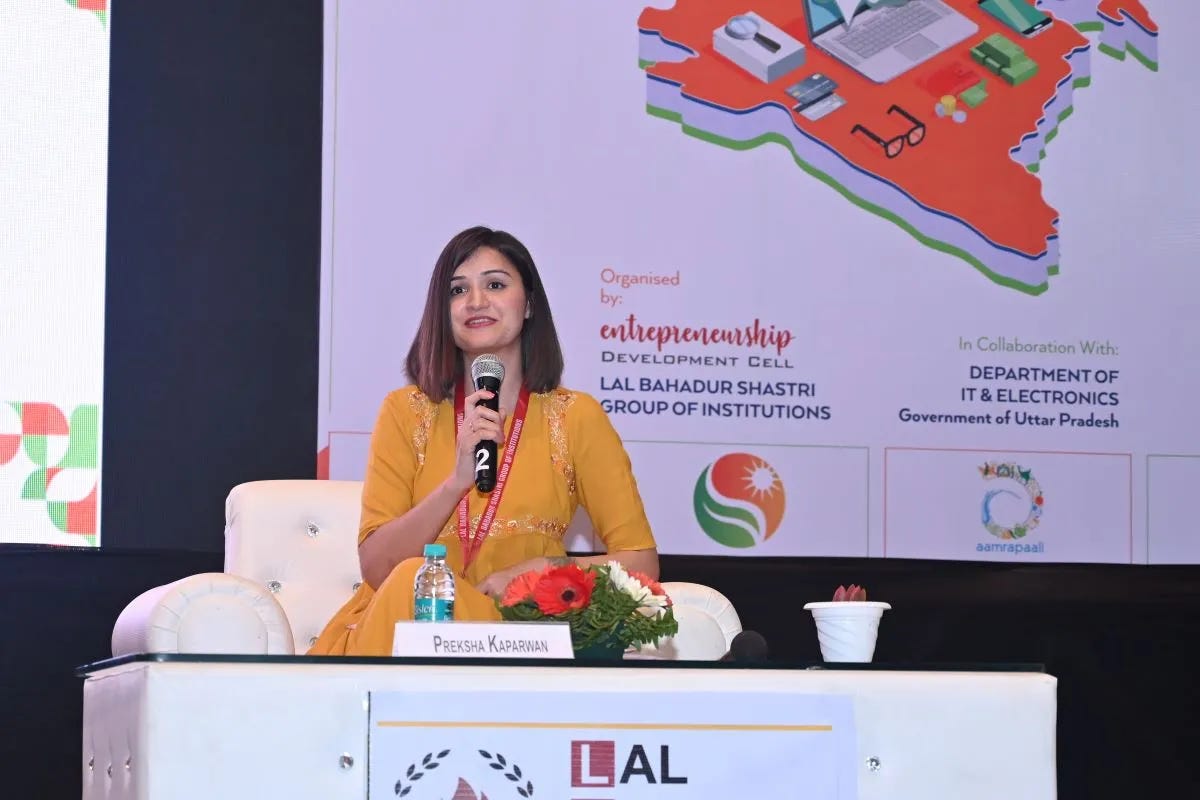Dear Readers,
Welcome to the #1 edition of TK, a dispatch from my world of journalism.
You may be wondering what TK means and why this (unusual) name for a newsletter–I will get to that after a brief introduction.
I am Mahima Jain, a multimedia journalist covering the socio-economics of gender, environment and health. I have been in this field for just over a decade, and I enjoy shoe-leather reporting, data and research–particularly the combination of the three to tell interesting stories. I want to keep this brief, so if you are interested in reading some of my work and knowing more about me here’s my website.
During the course of my work, there’s often a lot of material that I read, write and listen to. Some of it ends up in the story, much of it is background research and a lot of it is culled at the editing table. There are also anecdotes and interviews that get left out. I have been mulling about what to do with all that for a while, and I thought–why not, perhaps, put it all in a newsletter or a blog? Hence TK.
TK in journalism and publishing is an abbreviation for “to come”, often used by editors, reporters and publishers (mostly in the West) to mark something that needs to be decided or to be filled in. Tk was “a printer’s expression meaning material is to come.” No one really knows why journalists and editors use TK and not TC, but one theory is that there are few words in the English language which use the combination TK.
So, I chose TK as the title of my newsletter because I envision this as a repository of work to come: ideas and thoughts, material and stories, anecdotes and insights. It will have both updates about projects that are upcoming and past work that remains in the margins, waiting to be told.
What I will share is (hopefully) not unimportant –it's what forms the foundation of my stories and often informs my work in ways I find enriching. I read (and write) about science and society, systemic issues and everyday people in it, and the craft of writing. I also travel a fair bit for work, so there are often tales from the ground that I hope to share. That’s what I present to you in this newsletter.
So after several failed New Year’s resolutions to start something like this, I am embarking on this journey now. I will be sharing notes from my reporting diary, a curated list of articles/podcasts I am reading/listening to, and a list of references to journal articles and books that are shaping my work. If this sounds like something you’d like to see in your inbox, please do sign up to this newsletter!
In the coming months, I am focusing on gender. (Excited to share that) I am in the midst of projects that focus on gender-based violence and healthcare with the support of a Pulitzer Center grant, and gender and the economy as an IWMF Kim Wall Memorial Fund Grantee. These two (sort of big) projects will mean I will be reading, writing and talking to people about gender a lot.
So two things you need to know if you are keen on hearing from me (and I hope you do sign up!)--for the most part it will focus on gender, and I will aim to send it twice a month. Here we go.
This is something…
I wrote, and was published by Context News powered by Thomson Reuters Foundation. With the support of the IWMF Kim Wall Memorial Fund, I look at the gender gap in funding women-led businesses.
How can India's women-led startups beat gender funding gap?
This one time..
…I was on a reporting trip in Samastipur, Bihar. I was interviewing women who worked on family farms to understand the “feminization of agriculture”.
This was in March 2020, just before the pandemic hit. I met a young recently-married woman who lived with her in-laws. Her husband worked in a city, and he’d left soon after the wedding.
She welcomed me into her new marital home, which was under construction, with exposed brick and cement walls, and missing doors. Rooms were separated by thin fabric curtains and the space was sparsely furnished. We spoke for a few minutes and she was all praises about how her in-laws treated her well and that she didn’t have to do any work at all.
As I was leaving she followed me out of the house. Just beyond the threshold of her home, she extended her hand and asked me to write my number on her palm. I didn’t think much about this, and gave her my number.
In the evening, I got a call. It was the woman. She begged me to speak to her husband to let him know that she badly needed some petty cash for daily expenses. He had been sending the remittances to his parents' accounts, and since her in-laws controlled the purse strings, they controlled her life. She longed for him and wasn’t happy to be living with complete strangers who did not treat her as well. The paeans to her in-laws in the afternoon were only because she wasn’t sure if her neighbours or her in-laws could hear her.
Married Indian women are the largest group of migrants in India and there is so little we know about their struggles.
In that brief interaction, I saw how young married women in rural India face financial abuse at the hands of in-laws, lack support systems, and have to negotiate their autonomy.
This was the story that came out, where I followed the life of Anita Kumari, who worked on her in-laws farms and lacked financial access and agency.
“No One Knows About Me.” India’s ‘Left-Behind’ Women
This is what…
…anthropologist Lila Abu-Lughod says on the agency of women in the Muslim world vis-a-vis women in the West:
We need to reflect on the limits we all experience in being agents of our own lives. And beyond that, we have to ask ourselves what we think about those for whom choice may not be the only litmus test of a worthy life.
These are excerpts from Abu-Lughod's Do Muslim Women Need Saving?, which among the four books on anthropology recommend by The Economist. Before she wrote the book, Abu-Lughod wrote an article on the same topic in 2002.
https://twitter.com/_sen_sharmila/status/1649869173974003713
More from her book, here she questions the language of women's rights as human rights:
Are emancipation, equality, and rights part of a universal language or just a particular dialect?
On honor crimes against women:
The problem is that when violence occurs in some communities, culture is blamed; in others, only the individuals involved are accused or faulted.
Instead, it seems to me that we have to work hard at recognizing and respecting differences— but as products of different histories, as expressions of different circumstances, and as manifestations of differently structured desires. We should want justice and rights for women, but can we accept that there might be different ideas about justice and that different women might want, or even choose, different futures from ones that we envision as best?
And I leave you with this. That is it for the debut, see you in two weeks! Thanks for reading!
Best,
Mahima Jain
PS: Drop me a message/note if you have any comments or feedback on TK. Do subscribe to show your support!





